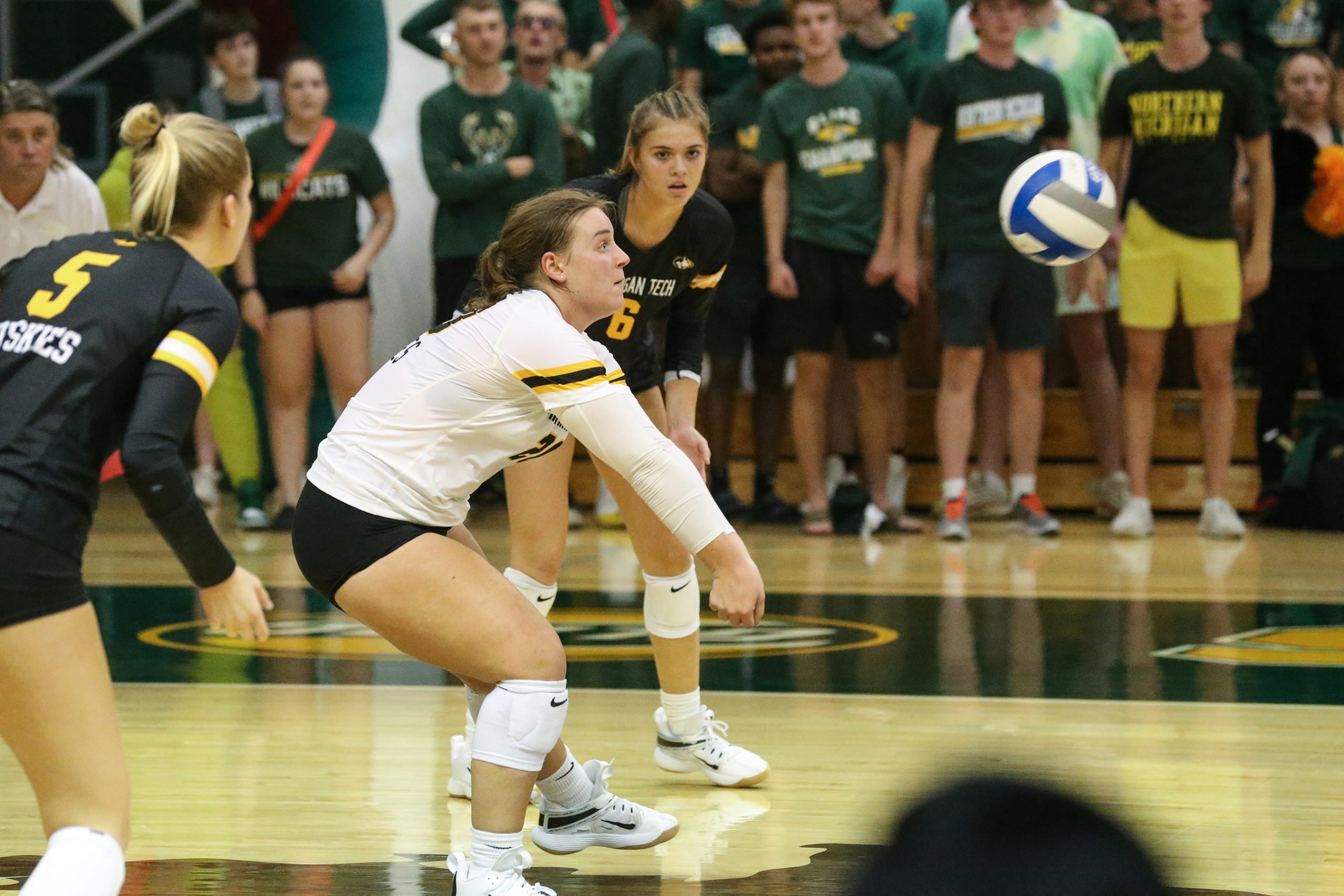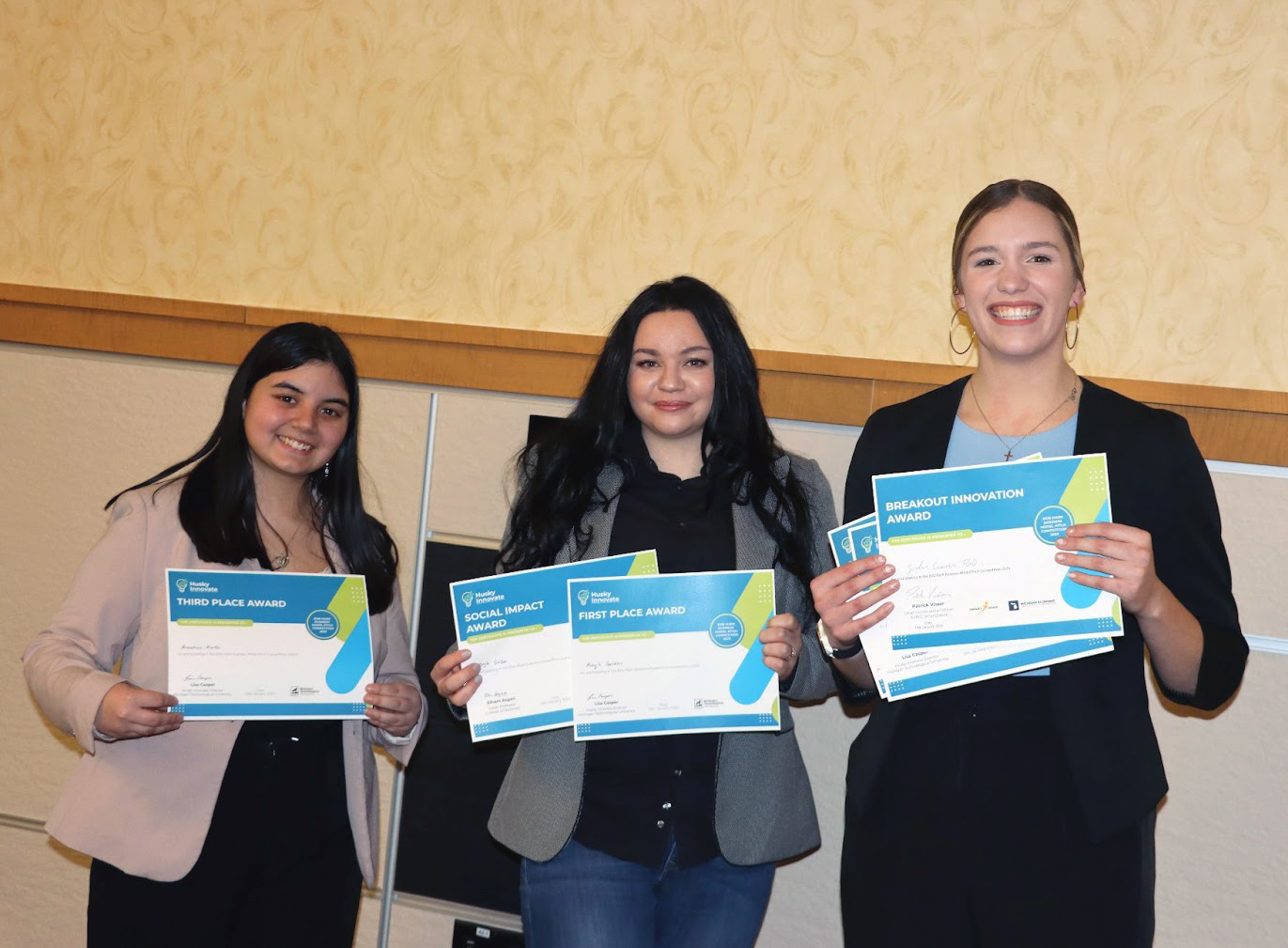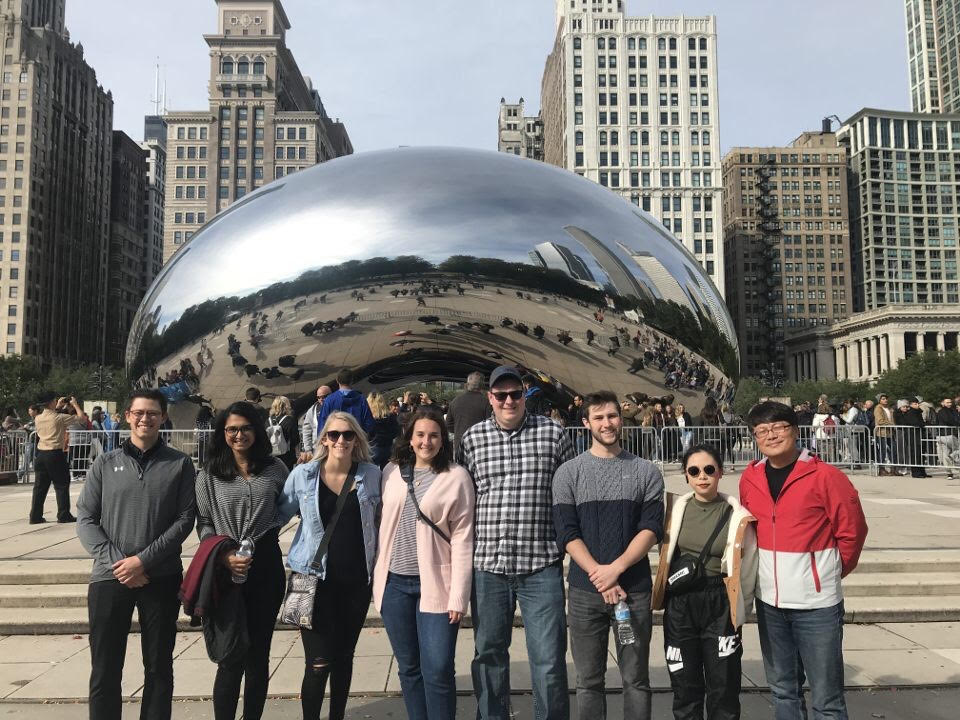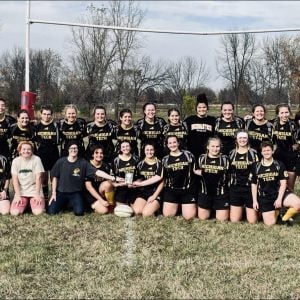
The Great Lakes Intercollegiate Athletic Conference (GLIAC) has announced the All-Academic and All-Academic Excellence Teams for the Fall 2022 semester. A total of 140 Michigan Tech student-athletes earned recognition with 94 Huskies on the All-Academic Excellence Team and 46 on the All-Academic Team.
Criteria states that the student-athlete must be an active member on the roster at the end of the season, not a first-year or a first-year transfer student. GLIAC All-Academic teams are comprised of those student-athletes that meet the criteria and carry a cumulative grade point average (GPA) of 3.0-3.49. GLIAC Academic Excellence teams are comprised of student-athletes that have a cumulative GPA of 3.50-4.0.
All-Academic and All-Academic Excellence Teams representing the Michigan Tech College of Business:
Men’s Cross Country Academic All-Excellence
- Clayton Sayen, Gr., Master of Business Administration, 3.87, Houghton, Mich./Houghton
Football Academic All-Excellence
- Gabe Frontuto, Jr., Master of Business Administration, 3.66, Luxemburg, Wis./Luxemburg-Casco
- Collin Hicks, R-Fr., Finance, 3.67, Marquette, Mich./Marquette Senior
- Patrick Kastner, R-Fr., Accounting, 3.51, Elmhurst, Ill./York Community
- Louis Thom, Sr., Engineering Management, 3.88, Leonard, Mich./Romeo
- Owen Watson, So., Engineering Management, 3.79, Otsego, Mich./Otsego
Football All-Academic
- Will Ark, Sr., Master of Business Administration, 3.12, Green Bay, Wis./Ashwaubenon
- Hunter Beuchel, So., Finance, 3.06, Lake Mills, Wis./Lake Mills
- Steele Fortress, Jr., Construction Management, 3.25, Spring Arbor, Mich./Parma Western
- Kolby Hindenach, R-Fr., Construction Management, 3.39, Paw Paw, Mich./Paw Paw
- Brady Ingbretson, So., Finance, 3.30, Wauwatosa, Wis./Wauwatosa
- Kevin Lee, Sr., Business Administration, 3.16, Warren, Mich./De La Salle Collegiate
- Will Marano, Jr., Management, 3.25, Dearborn, Mich./Edsel Ford
- Liam McDonough, So., Engineering Management, 3.31, Green Bay, Wis./West DePere
- Jacob Newman, So., Finance, 3.23, South Lyon, Mich./South Lyon
- Bryce Pietrantonio, R-Fr., Construction Management, 3.31, Kingsford, Mich./Iron Mountain
- Brendan Stephens, R-Fr., Construction Management, 3.30, Trenton, Mich./Allen Park
- Connor Worthington, So., Construction Management, 3.30, Grand Haven, Mich./Grand Haven
- Scout Wunder, Sr., Construction Management, 3.44, Escanaba, Mich./Escanaba
Soccer Academic All-Excellence
- Julia Pietila, So., Marketing, 3.96, Hartland, Mich./Hartland
- Alicia Shatrau, Gr., Accounting, 3.62, Brighton, Mich./Brighton
Volleyball Academic All-Excellence
- Carissa Beyer, Sr., 3.54, Finance, Appleton, Wis./Appleton North
About the College of Business
The Michigan Tech College of Business offers undergraduate majors in accounting, business analytics, construction management, economics, engineering management, finance, management, management information systems, and marketing, as well as a general business option. Graduate degrees include the TechMBA®, a Master of Engineering Management, a Master of Science in Accounting, and a Master of Science in Applied Natural Resource Economics.





